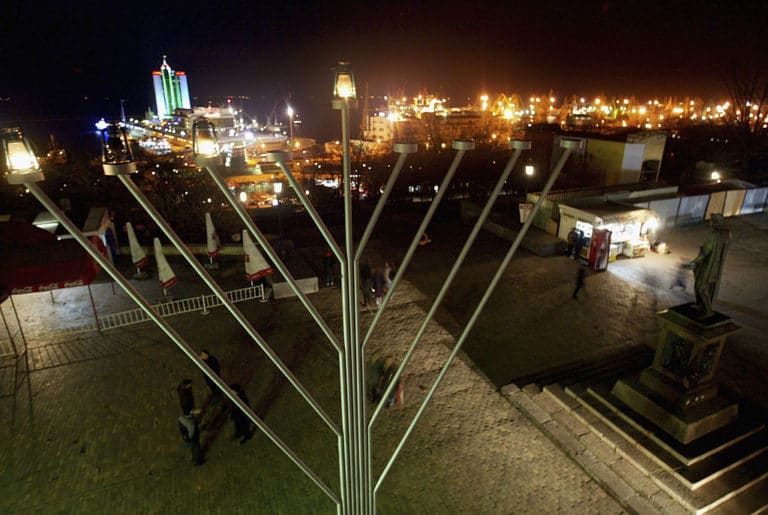
An all-out war between Ukraine and Russia has begun. What does this all mean? How does it impact Ukraine’s Jewish community?
How big is the Jewish community of Ukraine?
Today, it’s hard to calculate Ukraine’s Jewish population. Estimates range from 49,000 to 400,000.
Hebrew University demographer Sergio Della Pergola put the number at 49,000 in his “World Jewish Population, 2019,” while The European Jewish Congress estimates the number of Jews to be between 360,000 and 400,000.
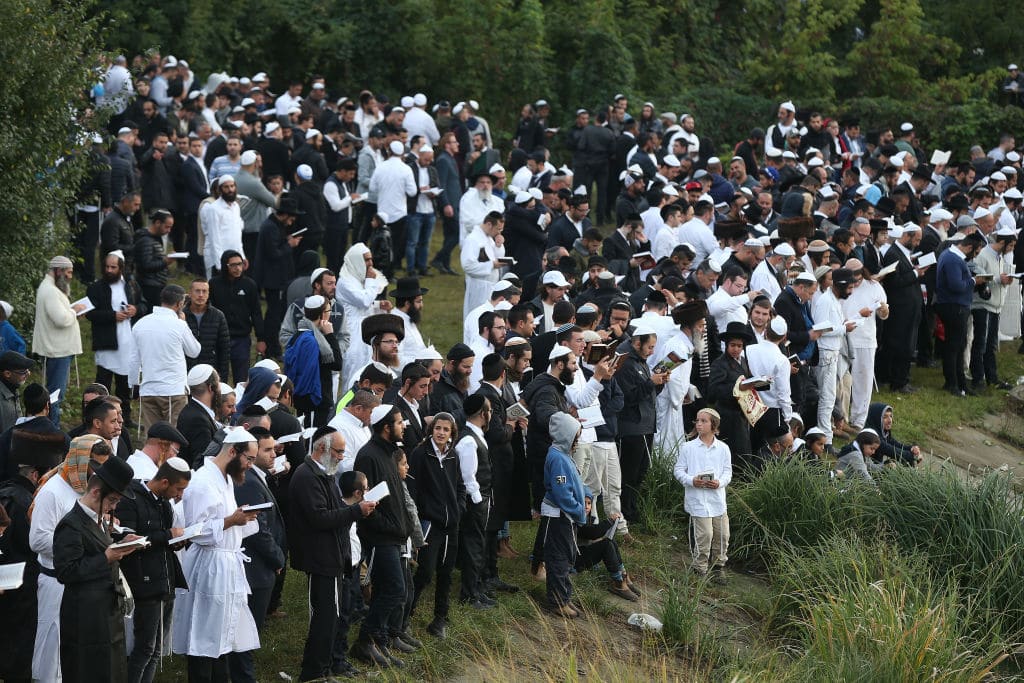
Who are the Jews of Ukraine?
The history of Jews in Ukraine dates back more than 1,000 years — historians speculate that Jews have lived in the area since at least the 9th century.
Ukraine is the birthplace of the Hasidic movement, which arose in the 18th century as a spiritual revival movement with a focus on mysticism in opposition to formal and scholarly approach to Jewish practice. The founder of Hasidism, Rabbi Israel Ben Eliezer (commonly known as the Baal Shem Tov) was born and died in Ukraine.
Another one of Orthodox Judaism’s largest sects has roots in Ukraine. Menachem Mendel Schneerson, known simply as “The Rebbe” to members of the Chabad-Lubavitch movement, was born on April 5, 1902, in the Black Sea port of present day Mykolaiv, Ukraine.
In the 19th century, Ukraine was densely populated with Jews who played a prominent role in the development of commerce and industry, especially in Kyiv, Odessa and Kharkov.
Ukraine was also home to a flourishing Jewish culture scene. It’s where Klezmer music (the traditional folk music of the Eastern European Jewry) got its start and where many Yiddish writers and poets were born.
At its high point, Ukraine had more than a million Jews whose native language was nearly 100% Yiddish, according to American Jewish historian Lance Sussman.
The famous writer Sholem Aleichem, who wrote “Fiddler on the Roof,” was born in the shtetl of Pereiaslav, south of Kyiv, and the musical is likely modeled after the shtetl life in which its writer grew up.
Ukraine’s history of antisemitism
Although some of Judaism’s most distinctive ideologies and traditions have their roots in the area, not unlike the rest of Europe, antisemitism has cloaked the Jewish community of Ukraine.
At the end of the 19th century and the beginning of the 20th century, the Jewish community faced pogroms and policies which tightened restrictions on where Jews could live and restricted the occupations that Jews could attain.
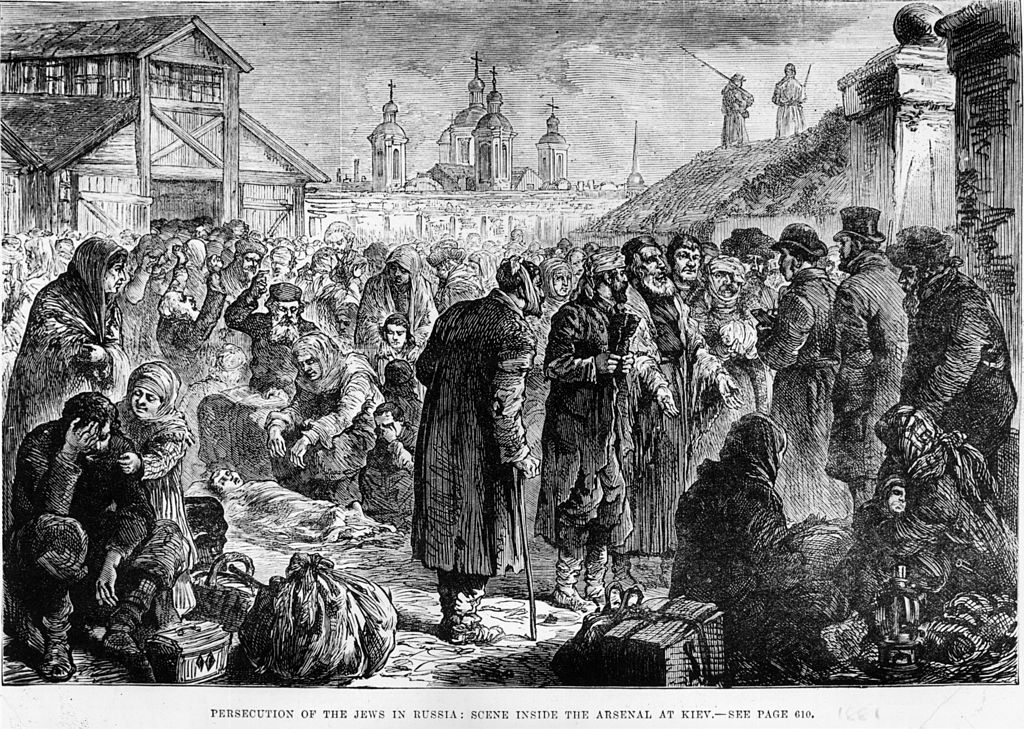
Before World War II, there were four Jewish autonomous districts in the southern part of Ukraine and in Crimea, according to the European Jewish Congress. During the Holocaust, more than one million Jews were killed by the Nazis and some local Ukrainian supporters.
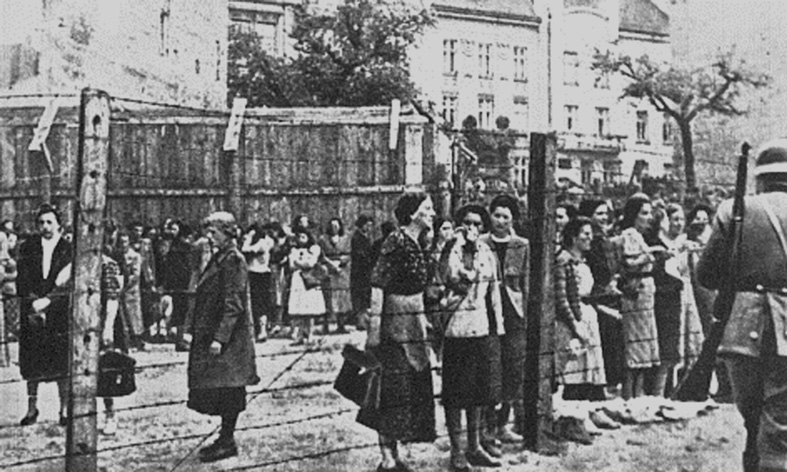
The Jews of Ukraine account for a great proportion of the Soviet victims of the Holocaust with the worst massacre taking place at Babyn Yar outside Kyiv. Between 1941 and 1943, more than 100,000 Jews were killed in Babyn Yar.
In the Soviet Union, the Jewish community’s “religious life was squashed by the [Soviet] authorities,” Israeli author Matti Friedman explained on the Tikvah podcast.
“They were not allowed to express their Judaism. They were not allowed to express Zionism, which was virulently opposed by the Soviet regime and condemned as a form of racism, and they were not allowed to leave for Israel,” Friedman said.
“Jewish identity didn’t exist in the Soviet Union, because it couldn’t,” Gal Beckerman of The Atlantic wrote. “To be a Jew from the time of Stalin onward was to have a stamp in your internal passport that marked you as such (just as a Ukrainian or Latvian national identity was also indicated). There was very little opportunity for Jewish community, religious practice, or even bare-bones cultural expression.”
“Synagogues were mostly shut down or crawling with KGB informants,” he explained. “Until the late 1980s, gathering for something as innocuous as a Passover seder was practically a subversive act, and teaching Hebrew was simply not allowed.”
With the collapse of the Soviet Union in 1991, more than one million Former Soviet Union (FSU) Jews immigrated to Israel within 10 years. (Read more about how the FSU aliyah changed Israeli society.)
“The end of the Soviet Union allowed some air to enter Jewish communal life for those who remained,” Beckerman wrote.
“In the eastern-Ukrainian city of Dnipro, not far from where Zelensky grew up, there are now 10 synagogues and a gargantuan community center called Menorah, opened in 2012, that reportedly serves 40,000 people a day — even though there are only 60,000 Jews in Dnipro.”
For some in Ukraine’s Jewish community, the current crisis has stirred up memories of past horrors, reported The New York Times.
“Though antisemitic violence is relatively rare in Odessa, some Jews are fearful that it could be unleashed by the chaos of war,” the article explained.
Antisemitic tensions
As for the general state of antisemitism in Ukraine today, Jews in Ukraine generally do not face acts of violence or public condemnations of Israel, according to a 2020 report by the American Jewish Committee.
Last month, Ukraine’s parliament passed a law criminalizing antisemitism as defined by the International Holocaust Remembrance Alliance. The offense is punishable by a fine or a prison sentence of up to five years.
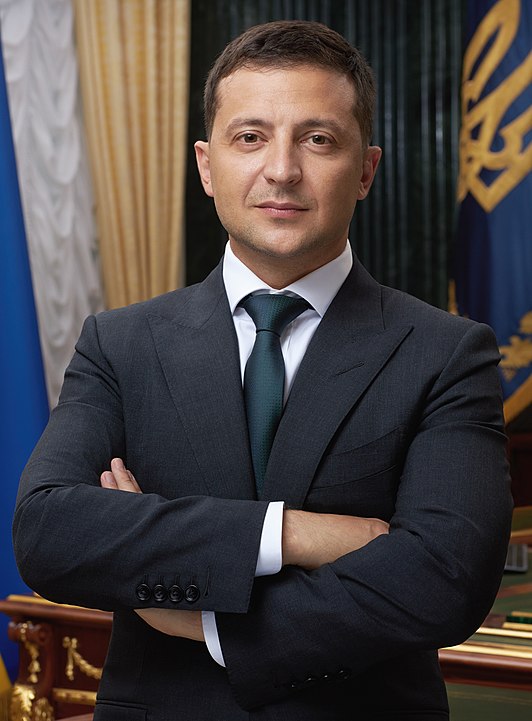
The president of Ukraine, Volodymyr Zelensky, has been outspoken about his Jewish identity. Members of his family were murdered during the Holocaust and others fought in the Red Army.
Between May and August 2019, Ukraine was the only country other than Israel to have both a Jewish head of government, Prime Minister Volodymyr Groysman, and head of state in President Zelensky.
Despite this, antisemitism is not a thing of the past in Ukraine.
“Antisemitism in Ukraine exists in its old ‘traditional’ and cultural form: the notion that Jews control all money, the media and government, they are greedy, murdered Jesus, and ‘suck our blood,’” said Samuel Kliger, the American Jewish Committee’s Director of Russian and Eurasian Affairs.
Ukraine has also been reluctant to reckon with its role in the Holocaust, during which more than one million Jews were killed by the Nazis and local Ukrainian collaborators.
Additionally, Kilger said, some Ukrainian lawmakers have pushed to celebrate certain Nazi collaborators as war heroes, trumpeting their anti-Communist battles while ignoring their complicity in Holocaust crimes.
Despite these trends, Ukraine still fares better than many of its neighbors when it comes to antisemitism. A Pew Research Center poll from 2018 found Ukraine to be the most accepting of Jews among all Central and Eastern European countries.
Originally Published Feb 23, 2022 12:02AM EST
